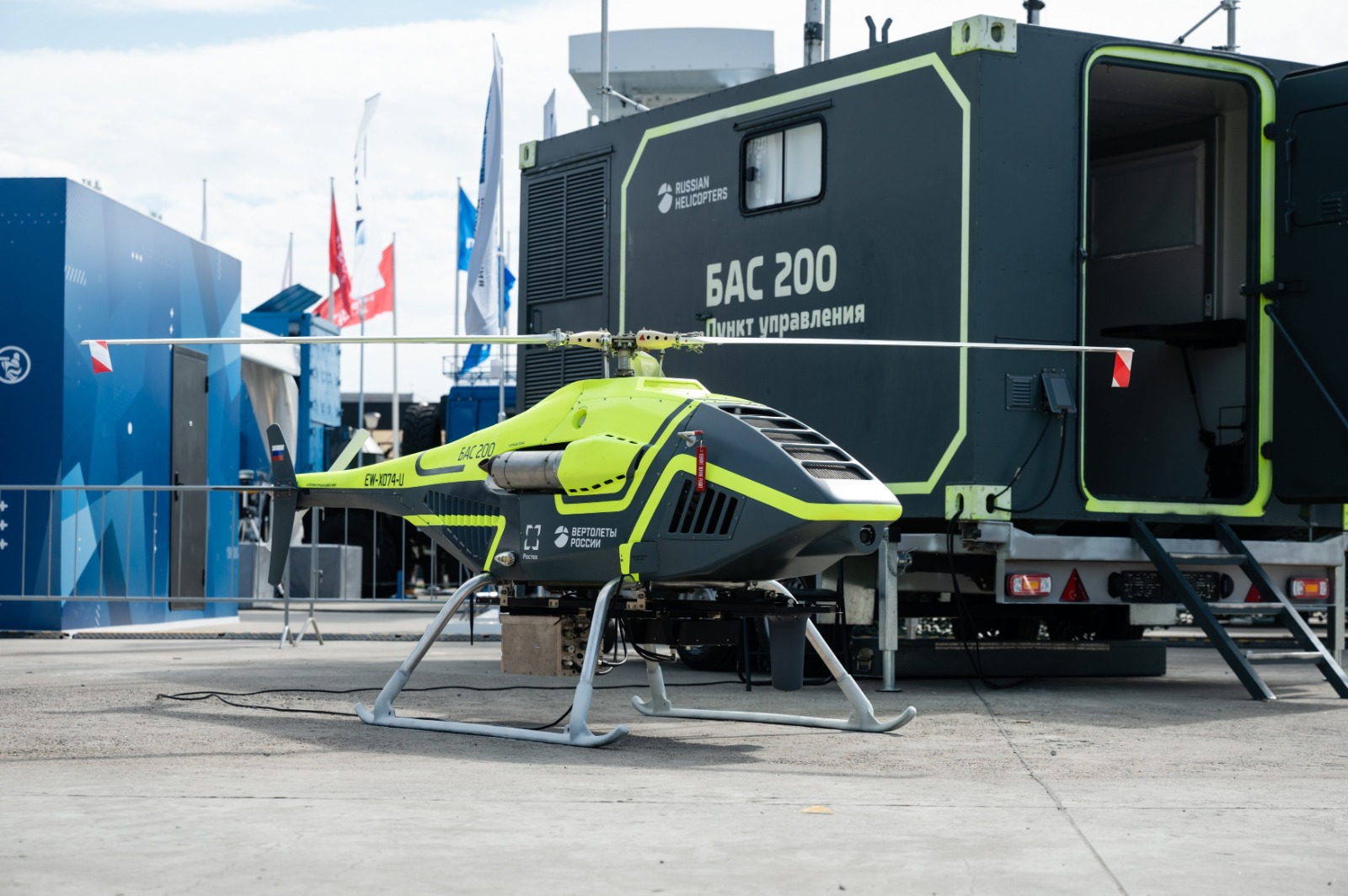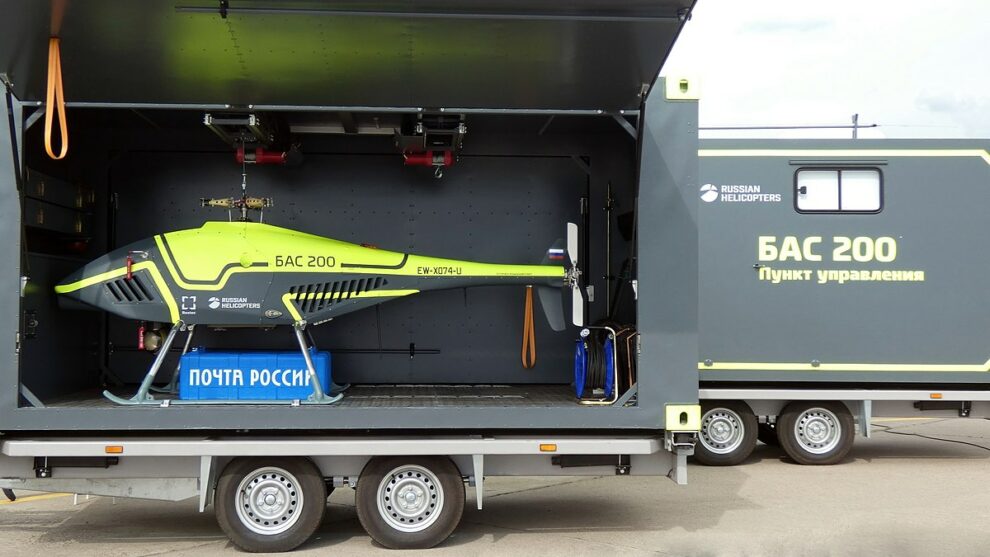The official noted that the site has the requisite infrastructure and facilities for testing equipment and training operators, Russian-language state news agency RIA Novosti reported. The meeting comes when drone attacks have become the most distinctive feature of the ongoing war.
“Today, not for the first time, we will naturally discuss the development and production of unmanned aerial vehicles, which our armed forces require during a special military operation. The state pays special attention to these tasks,” Medvedev said during the meeting.
RIA Novosti also published the official visit, which featured Medvedev examining a drone assembly area, leading to speculations that Moscow was working on producing a BAS-200 drone variant.
However, the RIA report did not mention specific details of the drones that were subject to discussion between the Russian officials and industry representatives.
A military commentator and an avid follower of Russian military development, Indian Air Force veteran Squadron Leader Vijainder K. Thakur identified the drone in the video as a variant of the BAS-200 drone, which reportedly broke cover a couple of years back in 2021.
“In the clip below posted by RIA Novosti, Medvedev is visiting a rotary wing drone assembly area. The drones under assembly appear to be a variation of the BAS-200 drones first unveiled at the MAKS-2021 air show,” Thakur said.
Incidentally, the BAS-200 was also among the many platforms on display at the Russian pavilion in the UAE’s recently concluded Dubai Air Show. The platform was on exhibit along with the Ka-32, Ansat, and the Mi-171.
The development may be significant given that the BAS-200 is a civilian platform, which the state arms manufacturer Rostec could be looking to modify into a military variant.
According to Thakur, “It should be possible for the military variant of the BAS-200 to undertake ISR and strike missions. It could carry a single Vikhr-1 ATGM or a laser-designator for laser-guided weapons like the Krasnopol. The audio signature of the drones powered by a gasoline engine is high.” EurAsian Times could not independently corroborate the claims solely based on the expert’s opinion.
However, there have been multiple reports suggesting that Moscow is making concerted efforts to ramp up drone production for use in Ukraine. EurAsian Times reported that Russia has repurposed a bread production plant into a facility for making FPV drones while continuing its regular baked goods production.
Russia has significantly increased its output of diverse FPV drone models and types following substantial investments in its military-industrial complex. Moscow is also reportedly developing its version of the Shahed-136 despite delays and sanctions that affect the requirement for components from other nations.
Additionally, it has also restricted the export of its own ZALA Lancet drones, thereby giving an impression that the drones are being reserved for use in the battlefield against Ukraine.
A military variant made based on the BAS-200 may not be very far-fetched. Medvedev noted that it was unexpected that since the start of the special military operation, demand for unmanned aircraft systems has increased significantly.
“As the course of warfare has demonstrated, cheap drones are now genuinely employed in huge quantities and at the tactical level. Since our nation has never before experienced mass production, it is imperative that this start as soon as possible.”
What Is BAS-200?
The domestic civil unmanned helicopter BAS-200, created by Mil and Kamov National Helicopter Center of the Russian Helicopters company (a division of Rostec), received certification from the Russian Federal Air Transport Agency in December 2022.
According to Rostec, BAS-200 can be used for a wide range of tasks, including distribution of commodities and area monitoring for forestry, agriculture, geological investigation, search and rescue operations, and many other areas of activity.

The unmanned complex in the shape of a helicopter comprises two unmanned aircraft, a ground control station, and an aircraft transport container. It takes only ten minutes or so to get ready for takeoff.
Compared to manned aircraft, the BAS-200 test results demonstrated increased cost efficiency when carrying out specific duties. The impact of the human component is reduced when an autonomous helicopter may be operated in automatic mode. In addition to its adaptability, the unmanned aerial system can operate its equipment in various climates.
BAS-200, as part of a universal unmanned aerial platform, is the first domestic helicopter-type unmanned aerial vehicle included in the experimental aviation register.
The BAS-200 is a vehicle with exceptional performance capabilities: it can go up to 160 kilometers/hour and carry up to 50 kilograms of payload. The aircraft can travel up to 3500 meters in height for up to four hours on a single flight.
In August this year, Sergey Chemezov, the CEO of the public corporation Rostec, said at a meeting with Russian President Vladimir Putin, “Of course, we will use this helicopter in the special military operation. Today, we are conducting tests. I think it can demonstrate good capabilities because 50 kilograms is rather good. In other words, the payload is impressive.”
Source : Eurasia Times















